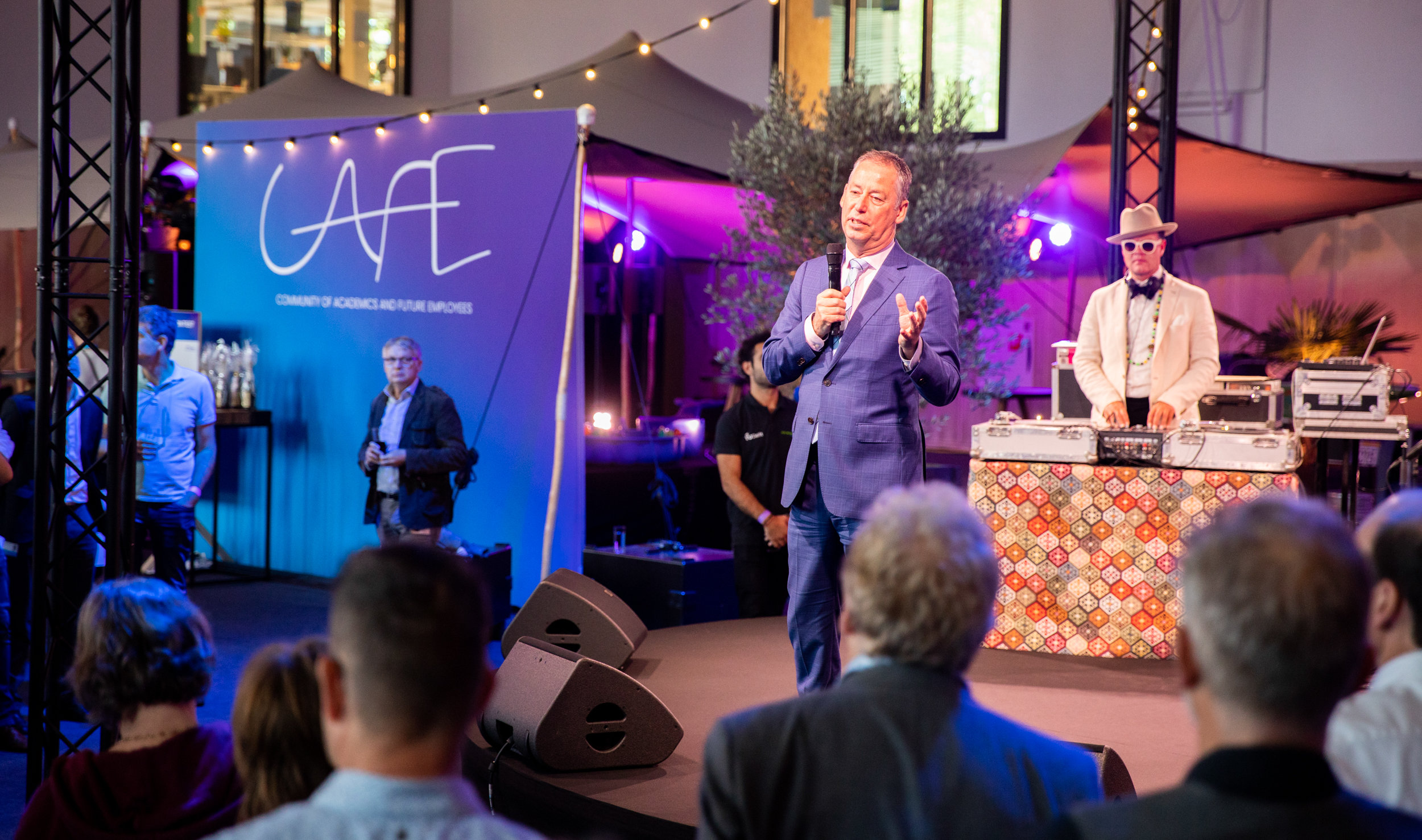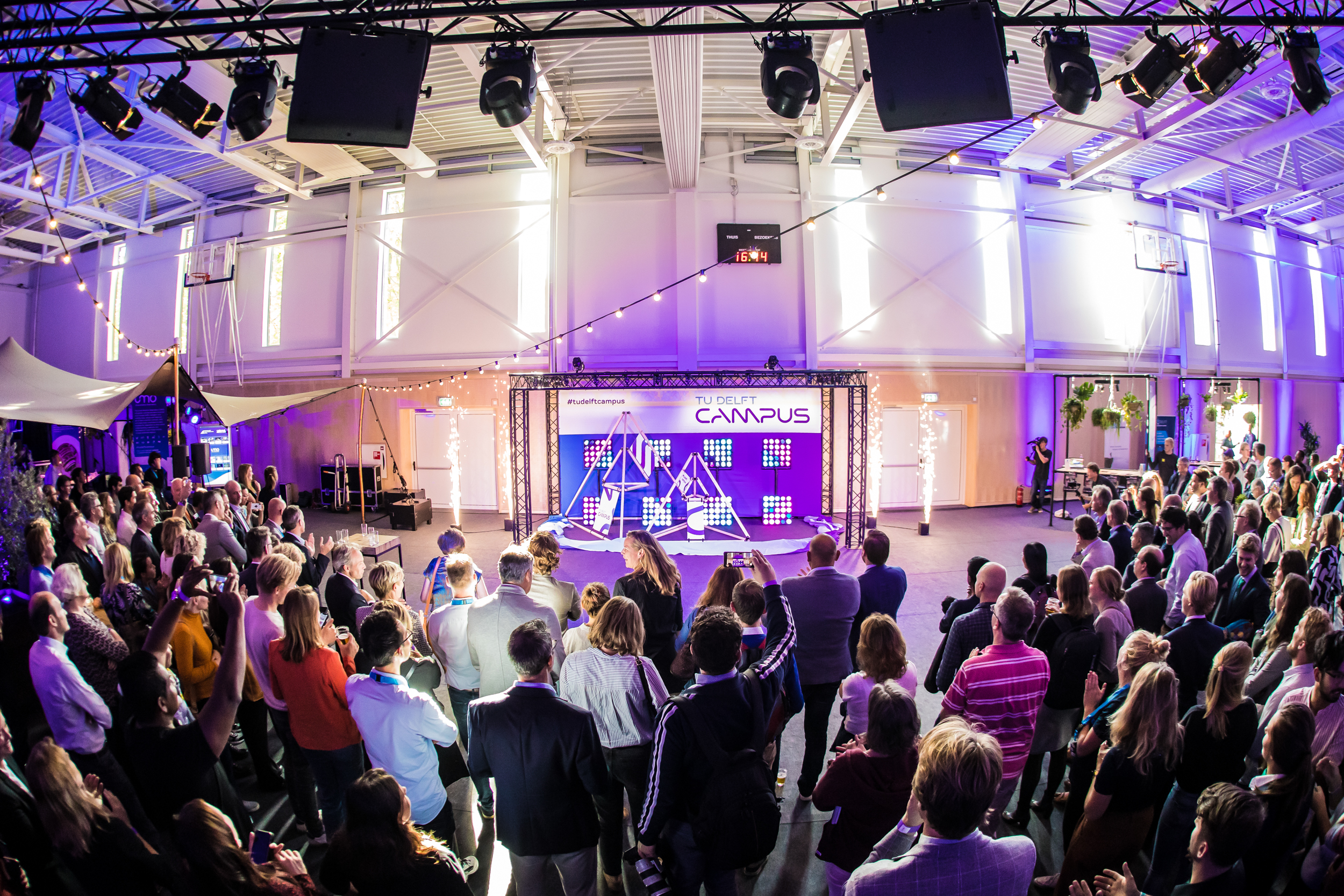Working together with companies and institutions
‘TU Delft demolishes last wall between science and industry’ headlined Het Financieele Dagblad in February. No need to worry, TU Delft continues to be a place for research and education, while increasing collaboration with businesses to accelerate innovation. President of the Executive Board Tim van der Hagen explains.
“In February we launched X!Delft, a new programme in which we are working together with large companies and financial institutions. Not on specific projects, as often happened in the past in the form of contract research, but in a broader sense: can new technologies lead to new products or business models?
And based on our philosophy that what we do should have a positive impact for a better society, for example working with Heineken on circular production, and with VolkerWessels on reducing their carbon footprint.”
Field labs
“This launch was behind the headline in the Het Financieele Dagblad newspaper. However, X!Delft is just one of the ways in which we are expanding our collaboration. Last year, we signed an agreement with Ahold Delhaize to explore the use of robotics in the retail branch. And in recent years we have set up a considerable number of field labs. These include the Autonomous Shipping Research Lab, a meeting place for all parties involved in autonomous shipping – researchers, business partners and government authorities. And The Green Village, our open-air lab where we are working on solutions to flooding in the city and testing whether hydrogen could be a good alternative to natural gas.”
Medical collaboration
“Our medical research is conducted in close collaboration with our fellow universities in Leiden and Rotterdam. This can be seen on campus at HollandPTC, the proton therapy research and treatment centre that we set up together with Erasmus MC and the LUMC. And last year we strengthened the bonds with Erasmus MC and Erasmus University Rotterdam (EUR) even more, to enable us to combine medicine, technology and social sciences in order to tackle complex issues in the field of health and healthcare.”
Incubators
“Activity on the campus is steadily increasing as well. Our incubators Yes!Delft and Yes!Delft Labs offer a place for dozens of innovative start-ups with their roots in TU Delft know-how. And with success: last year, Yes!Delft was in second place in the world rankings for University Business Incubators. Together with the ASR Dutch Science Park Fund, we are now exploring the possibilities for creating a collective building for scale-ups from Yes!Delft and other businesses who would like to settle on campus. Companies such as Applikon Biotechnology, VSL, Exact and 3M led the way, and will soon be joined by electrical multinational ABB.”
Encounters are an important aspect of the innovation process; meeting with other people that can lead to inspiration, cross-pollination and new collaborations
Co-creation
“We are turning into a University 4.0: an innovation ecosystem in which we work together with businesses, government bodies and other knowledge institutions to accelerate valorisation of our research in the market and society. This is vital, because challenges such as the energy transition, shortages of raw materials, traffic congestion, rising sea levels and sinking groundwater levels are extremely urgent. The old model, in which research results may or may not have been developed further in industry or business, is no longer fit for purpose. That innovation chain takes too much time, and too many ideas and inventions never make it to final application. This is why nowadays we seek each other out and work jointly and simultaneously, rather than alongside and after each other. It is precisely this co-creation that accelerates innovation.”
TU Delft Campus
“To reinforce this development, we have decided that the entire university grounds, including the former Technopolis site should continue under a single name: TU Delft Campus. I can hear you thinking, OK so the TU Delft campus is now called TU Delft Campus. Yet this is an important step. The physical difference is that the former Technopolis site is now also part of the TU Delft campus. But far more important is that it shows that we are welcoming our ‘business’ residents into the TU Delft community: a single community joined by technology and the joint passion to realise sustainable innovations.”
Encounter
“This development was formally celebrated on 20 September with a kick-off attended by over 300 people from every corner of the campus: students, researchers and field lab assistants, start-ups, scale-ups and large companies. And this was just a beginning, because encounter is an important aspect of the innovation process; meeting with other people that can lead to inspiration, cross-pollination and new collaborations.
I myself had to leave the celebrations a little early. An hour later, I was seated together with Minister Van Engelshoven in the front row at the awarding of the Gravitation grants, the government funding for consortia of excellent academics who are carrying out innovative and influential research in their field. After all, research will always be core business at TU Delft.”
The future
“And what will our campus look like in ten or twenty years’ time? I suspect, a cross between a traditional campus and a high-tech industrial park. But still a place where we continue to provide excellent teaching and carry out fundamental and applied research; and at the same time a place where we are all building together on the future, with a focus on our mission: impact for a better society. One thing is certain: there will always be a place on campus for our alumni, because you are also a vital part of the TU Delft ecosystem. There’s a good reason why we say ‘TU Delft for life’.”

